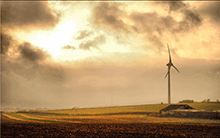
Building Trust in AI through Justice


Array
(
[thumbnail] => https://s42831.pcdn.co/wp-content/uploads/2022/09/hero-placeholder-150x150.png
[thumbnail-width] => 150
[thumbnail-height] => 150
[medium] => https://s42831.pcdn.co/wp-content/uploads/2022/09/hero-placeholder-300x129.png
[medium-width] => 300
[medium-height] => 129
[medium_large] => https://s42831.pcdn.co/wp-content/uploads/2022/09/hero-placeholder-768x329.png
[medium_large-width] => 768
[medium_large-height] => 329
[large] => https://s42831.pcdn.co/wp-content/uploads/2022/09/hero-placeholder-1024x439.png
[large-width] => 1024
[large-height] => 439
[1536x1536] => https://s42831.pcdn.co/wp-content/uploads/2022/09/hero-placeholder.png
[1536x1536-width] => 1400
[1536x1536-height] => 600
[2048x2048] => https://s42831.pcdn.co/wp-content/uploads/2022/09/hero-placeholder.png
[2048x2048-width] => 1400
[2048x2048-height] => 600
[gform-image-choice-sm] => https://s42831.pcdn.co/wp-content/uploads/2022/09/hero-placeholder.png
[gform-image-choice-sm-width] => 300
[gform-image-choice-sm-height] => 129
[gform-image-choice-md] => https://s42831.pcdn.co/wp-content/uploads/2022/09/hero-placeholder.png
[gform-image-choice-md-width] => 400
[gform-image-choice-md-height] => 171
[gform-image-choice-lg] => https://s42831.pcdn.co/wp-content/uploads/2022/09/hero-placeholder.png
[gform-image-choice-lg-width] => 600
[gform-image-choice-lg-height] => 257
)

At the tenth session of the Open Working Group (OWG) on Sustainable Development Goals, the representative from Guatemala affirmed, “we need to do the not nice or glamorous job of choosing and prioritizing.” The OWG is currently facing the daunting task of winnowing down and reformulating 19 focus areas into concrete goals and targets, and a lack of consensus persisted in its most recent session. The OWG Co-Chairs composed a compendium of possible goals and targets suggested to date and repeatedly reminded member states to use their time to focus on narrowing down the list to those they wished to see in the post-2015 development agenda. Few specified exactly which focus areas they believed should be cut, however there was collective strong support for excluding climate as a standalone goal and instead incorporating “climate smart” targets under food security, infrastructure, energy, and other focus areas. Some representatives pointed out that the inclusion or exclusion of certain areas would influence political acceptance of the Sustainable Development Goals (SDGs) in 2015. One such example is the inclusion of the ‘peaceful and non-violent societies, rule of law, and capable institutions’ focus area. Some countries claimed the topic was too divisive to be included, while others insisted that the focus area an essential component of sustainable development.
In addition to the content of the goals, the overall SDG structure was also discussed, namely how many targets will belong to each goal and whether some targets will apply to more than one goal. Most country groups acknowledged the need to limit targets to enable governments to prioritize the most crucial goals and not strain resources over too many targets. Some suggested four or five targets per goal as ideal. Member states simultaneously referenced the interlinked, cross-cutting nature of many goals and suggested using the same target under multiple goals. For example, targets relating to technology and science were frequently put forward as the essential link for all development goals. There was also discussion and even repeated consensus on disaggregating target indicators by gender, disability, and age to achieve a more accurate evaluation of countries’ progress on the goals.
These general issues will be key for OWG members to discuss so that a globally acceptable stance is formed on these three key areas. As of now, the OWG only has three more sessions in which to address these decisive issues before it submits its report to the Secretary-General and President of the General Assembly in August, so there is little time for member states to waste.
Publication Date:
Apr 14, 2014
Author(s):
Monroe Elizabeth Lacerte
Topic(s):
Post 2015 Development
Program(s):
Pathfinders for Peaceful, Just and Inclusive Societies


Subscribe to our newsletter and receive regular updates on our latest events, analysis, and resources.
"*" indicates required fields